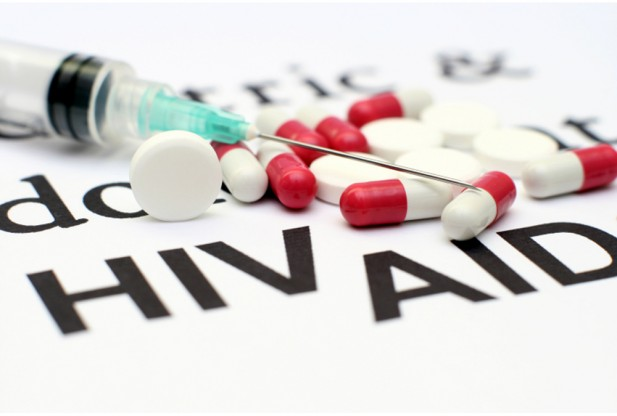Nigeria Intensifies Efforts to End AIDS by 2030, Focuses on Stopping HIV Among Children.
Speaking at the 2024 World AIDS Day event in Abuja, themed “Take the Rights Path: Sustain the HIV Response and Stop HIV Among Children to End AIDS in Nigeria by 2030,” Dr. Salako highlighted the Federal Government’s resolve to leave no child behind in the fight against HIV/AIDS.
He emphasized the importance of holistic strategies addressing social, cultural, and economic barriers hindering access to healthcare services for women and children.
The Honourable Minister of State for Health and Social Welfare, Dr. Iziaq Adekunle Salako, has reiterated Nigeria’s determination to end AIDS as a public health threat by 2030.
Dr. Salako commended the National Agency for the Control of AIDS (NACA) and the National HIV/AIDS, Hepatitis, and STIs Control Programme (NASCP) for their leadership in expanding access to HIV testing, treatment, and prevention services.
He also acknowledged the significant contributions of development partners, particularly the United States Government and the Global Fund, for sustaining over a million Nigerians on treatment.
The Minister called for collaborative efforts involving state governments, the private sector, and community leaders to scale up interventions aimed at preventing HIV transmission among children.
He emphasized that collective action and government accountability through sector-wide approaches are essential to achieving a healthier and inclusive future, free of HIV.
The Director General of the National Agency for the Control of AIDS (NACA), Dr. Temitope Ilori, emphasized the urgent need to sustain efforts in the fight against HIV, particularly among children.
Dr. Ilori highlighted the national prevalence of HIV at 1.4% among the general population aged 15-64 years, with an estimated two million Nigerians living with the virus.
She pointed out that the prevention of mother-to-child transmission (PMTCT) remains a significant challenge and called for expanded access to antenatal care and the removal of barriers hindering women and children from accessing timely services.
“In our journey to end AIDS by 2030, we recognize the critical roles of policymakers, religious and traditional leaders, civil society organizations, and our development partners. Together, we must sustain this momentum and prioritize the health of future generations,” Dr. Ilori stated.
The DG noted remarkable achievements in the country’s HIV response, including the establishment of the PMTCT and pediatric acceleration committee, initiatives for local production of antiretrovirals and HIV-related commodities, and improved data management.
“For the first time in three years, Nigeria’s HIV data has been published by UNAIDS, showcasing transparency and evidence-based interventions.”
However, she acknowledged persistent challenges, including dwindling donor funding, stigma and discrimination, and service delivery gaps.
“To overcome these challenges, we must scale up PMTCT services nationwide, abolish user fees, expand health insurance coverage to include comprehensive HIV care, and create safe spaces where everyone can access treatment without fear of stigma,” she said.
Dr. Ilori also unveiled a sustainability roadmap developed in collaboration with stakeholders to ensure Nigeria can sustain its HIV response independently of donor funding.
“This roadmap will position government structures at the forefront of program implementation, securing the health and social well-being of Nigerians.”
She expressed gratitude to President Bola Ahmed Tinubu for his leadership and commitment to the HIV response, emphasizing the need for continued support to place more Nigerians on treatment annually.
Dr. Ilori urged stakeholders to strengthen partnerships, foster inclusivity, and prioritize equity in the HIV response.
“The power to end AIDS lies in our hands. By breaking barriers and standing together, we can achieve the goal of ending AIDS as a public health threat by 2030,” she added.
The United Nations Resident Coordinator in Nigeria, Mr. Mohamed M. Fall, urged stakeholders to adopt a rights-based approach in addressing the HIV epidemic, emphasizing the need to prioritize the rights of children and vulnerable populations.
Mr. Fall reiterated the UN Secretary-General’s call for breaking barriers to equitable healthcare access.
Highlighting the alarming statistics, Mr. Fall noted that 160,000 children in Nigeria are living with HIV, and the mother-to-child transmission rate stands at 23%.
With only 33% of pregnant women receiving antiretroviral treatment, the Coordinator stressed the need for intensified efforts to eliminate vertical transmission of HIV and ensure children born with the virus receive life-saving treatment.
He praised President Bola Ahmed Tinubu’s commitment to sustaining the progress of the national HIV response, which includes expanding access to prevention and treatment services while upholding human rights.
Mr. Fall emphasized that human rights, gender equality, and sustainable financing are critical for achieving the 2030 goal of ending AIDS as a public health threat.


Comments are closed.